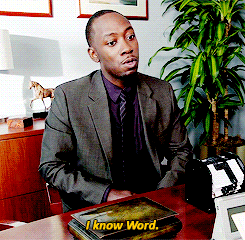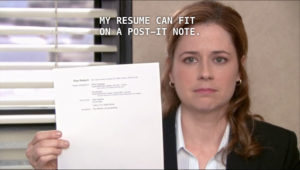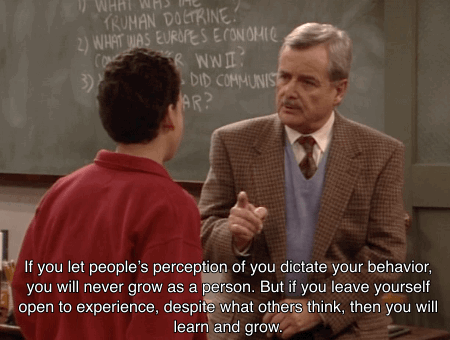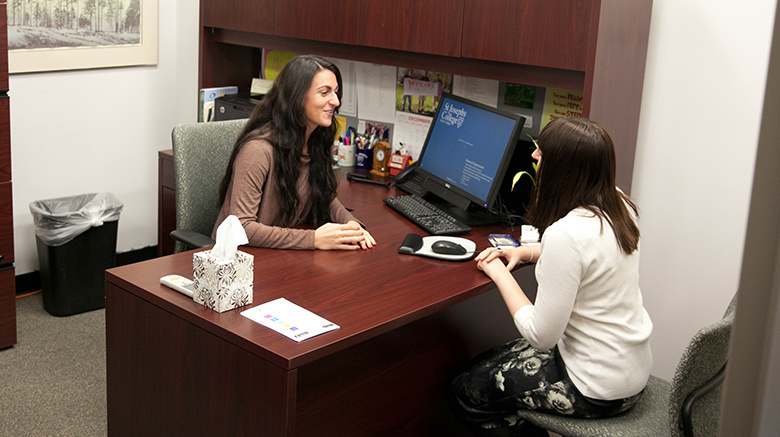 We all know that a job interview isn’t the most enjoyable experience in the world. It’s stressful, uncomfortable and
We all know that a job interview isn’t the most enjoyable experience in the world. It’s stressful, uncomfortable and
sometimes downright terrifying. But we all have to do it.
Fortunately, SJC Long Island’s Director of Career Development and Engagement Jennifer Rooney has some advice for you – so you don’t end up babbling about all the stuff you know how to do in Microsoft Word during your next interview.
Here are seven tips to help you do well during your next interview.
1) Prepare a few days in advance.

When you take the time to prepare, it leaves less room for things to go wrong. “Know what you are going to wear and get items dry cleaned,” Rooney said. “Print out several copies of your résumé, cover letter and references and do a practice drive (to the interview location). Know where you have to go and how long it will take you to get there — and plan for inclement weather!”
Also, preparing a few days ahead and leaving nothing up to chance should help alleviate some of the nerves.
2) Look up the company you are interviewing for as well as the specific position for which you are interviewing.
There’s nothing worse than going on an interview, having the interviewer ask you what you know about the company, and staring blankly in return. Do your research!
“Know the company’s mission and goals, what services they provide or offer, who works there and anything that sets them apart from similar organizations,” Rooney said. “That information will be helpful in answering questions, having questions of your own and showing the company that you took the time to learn about them.”
3) Make a list of your own questions to ask on an interview.

If you have questions about the position, company or important policies that you want to know, just ask.
Additionally, consider asking more thought-provoking questions, such as what the interviewer’s favorite aspect of the company is. Questions like this demonstrate your interest, and the answers might tell you if the company would be a good fit for you.
“It is good to ask a few questions at the interview, around two to three,” Rooney said. “But always prepare more, as inevitably they answer some of your questions throughout the interview process.”
4) Ask a friend or family member to do a practice interview with you.

If you feel your nerves getting the best of you, try and relax. You already impressed your potential employer with your résumé. But if you’re still nervous about the interview, consider asking a friend or family member to do a practice interview with you. It will help you think of how to respond to interview questions, and will allow you to do so in front of someone you’re comfortable with. It will also help you memorize your own résumé backwards and forwards, which SJC Long Island’s Director of Career Development and Engagement stressed is very important.
“Employers will generally refer to or ask questions pertaining to various items that you have placed on your resume,” Rooney said.
5) Be yourself.

Your personality is one aspect of the job search. Remember to act professional, enthusiastic and — above all — be yourself!”
“Show them that you are a confident candidate but you are not overly confident, as everyone has something to learn at a new job,” Rooney said.
“Your personality is one aspect of the job search. Remember to act professional, enthusiastic and — above all — be yourself!”
6) Review how the interview went.

“Remember that you are interviewing them as much as they are interviewing you, and always review for yourself how you feel the interview went,” Rooney said.
Were you impressed with everything you heard about the company? Did the position sound like something you would enjoy doing? How did the work environment feel? Could you see yourself working there? If not, keep searching.
7) Send a “thank you” email.

Make sure to thank the interviewer for his or her time. If you’re definitely interested in the position, make sure that comes across in your interview.
“Follow-up afterwards with a thank you,” Rooney said. “Make sure to address everything as professionally as possible (i.e. Dear Mr. Smith or Ms. Jones), recall something that stood out during the interview and restate your enthusiasm for the position.”
However, if you’re not interested in the position, still thank them for the time but politely inform them that you are no longer interested in being considered for the job. You don’t want to waste their time.

